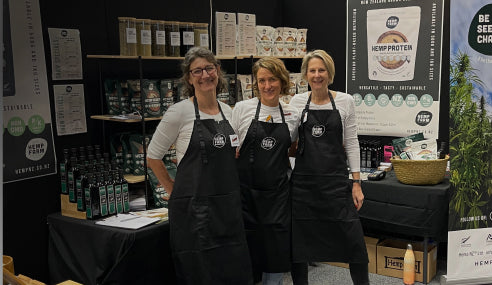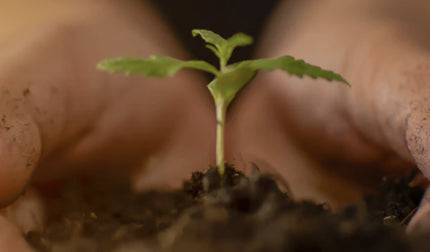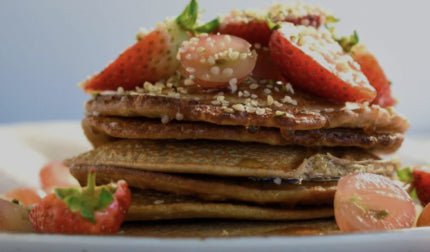Plastic Free July® is a global movement that encourages people to be part of the solution to plastic pollution by providing resources and ideas to help reduce single-use plastic waste.
By choosing to make even small changes we can collectively make a massive difference to our communities. How about pledging to avoid all single use packaging for a day, a week, or a month? You can make a start by avoiding plastic bags, bottles, cups and straws, or go completely plastic free.
We were thrilled to hear that we can now take advantage of The Soft Plastics Recycling Scheme launched here in Tauranga in early July 2022. Soft Plastics Recycling Scheme manager Lyn Mayes told the Bay of Plenty Times that Tauranga now has the most Soft Plastic recycling bins per capita of any New Zealand city where the scheme is operating. The plastic collected by the scheme last year made around 34,000 fence posts – enough to fence from Waiuku to Tauranga. In all, around 330 tonnes of post-consumer soft plastics, (equivalent to 50 million bags or wrappers), was collected and recycled here in New Zealand.
What about hemp plastic?
Hemp is the greatest cellulose producer on earth, and it’s biodegradable. Hemp can form part of a bio composite plastic whereby it’s either part of a totally organic mix or is mixed with a synthetic polymer. Most commercially available hemp plastics on the market today are bio composites. More specifically, they are fibre-reinforced bio composites – i.e., hemp fibre is used to reinforce an existing polymer. Hemp stalks are decorticated and the hurd – the innards of the stalk – is micronized and mixed with an existing polymer to create a fibre-reinforced bio composite.
While 100% hemp-based plastic is still a rarity, some “composite bioplastics” – plastics made from a combination of hemp and other plant sources – are already in use. Thanks to their high strength and rigidity, these plastics are currently used in the construction of cars, boats, and even musical instruments.
What are we doing?
At Hemp New Zealand we continue to discuss and find solutions to lessen our impact on the environment and reduce our plastic use. How are we doing this?
- Recycling bins in the kitchen
- Collecting food scraps and biodegradable matter to contribute to a community garden compost
- Biodegradable void (made from expanded starch) to pack out shipping boxes
- Compostable courier bags made of corn starch
- Repurposing cartons and office paper for packaging shipped goods
- Investigating a partnership with the Soft Plastics Recycling Scheme
- Innovating and delivering new products made from hemp fibre for construction and roading, e.g., insulation and erosion control.
In response to Plastic Free July, we challenge you to find alternatives to plastics that can become new habits forever, by for example:
- Refusing single use plastics, e.g.
- Takeaway cups
- Plastic shopping bags
- Water bottles
- Meat and Deli Containers
- Plastic Straws
- Plastic razors
- Avoiding pre-packaged meat, fruit, and veg
- Buying in bulk where possible and using your own containers
- Swapping liquid soaps and shampoos for bar soaps
- Purchasing only plastic-free sanitary items
- Purchasing quality over quantity, e.g., avoid fast fashion and replace with natural materials
- Supporting small business and markets
- Refusing, Reusing, Reducing, and Composting = Recycling less!

Soft Plastic Packaging/Recycling
Have you wondered why we use soft plastic packaging for our Hemp Hearts and Hemp Protein given our sustainability goals? Well, it’s tricky… the subject of avoiding plastic is a complex one. Although we might automatically assume paper is preferable to plastic, paper packaging is not always necessarily environmentally better. The impact of paper packaging on the carbon footprint is often far greater than plastic. While cardboard is made from timber, which is a renewable resource, cardboard contributes far more to greenhouse gases than their plastic equivalents and take substantial amounts of energy to make. By contrast, soft plastic is light, durable, recyclable and its manufacture is generally not particularly energy intensive.
We have elected to use soft plastic for packaging our hemp hearts and hemp protein because it:
- extends the shelf life of our product
- ensures food safety by providing a protective barrier from heat and microorganisms
- is lightweight and durable
- uses minimum resources
- transports easily due to its light weight and flexibility
- features a reusable zip lock seal for product freshness
- can be recycled easily.
The argument for plastic over cardboard is ongoing but what’s most important is that they can both be either repurposed or recycled and kept out of our landfills and waterways. Recycling and reusing both types of packaging has proven to a very effective way to minimise carbon footprint and protect the environment.
Soft plastic recycling is easy. Just follow these three steps:
- Clean it – rinse your packaging
- Scrunch it – if it pings back, it’s a useful indicator it’s soft plastic
- Recycle it – Find your nearest soft plastics recycling store here
The Soft Plastic Recycling Scheme reports that over 76% of Kiwis now have access to a soft plastic recycling bin within 20km of home or work.



